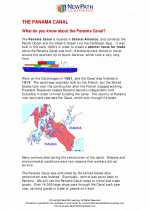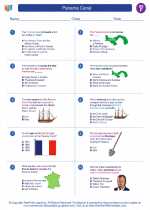Indian Ocean
The Indian Ocean is the third largest ocean in the world, covering approximately 20% of the water on the Earth's surface. It is bounded by Asia to the north, Africa to the west, Australia to the east, and the Southern Ocean to the south. The Indian Ocean has played a significant role in shaping the history, culture, and economy of the countries that surround it.
Geography
The Indian Ocean is characterized by its warm and tropical waters. It is home to numerous islands, including the Maldives, Seychelles, Madagascar, and the Andaman and Nicobar Islands. The ocean also contains several important waterways, such as the Strait of Hormuz, the Bab el Mandeb, and the Strait of Malacca, which are crucial for global trade and transportation.
History and Trade
The Indian Ocean has been a major center of maritime trade for centuries. Ancient civilizations such as the Indus Valley, Mesopotamia, and Ancient Egypt engaged in trade with each other through the Indian Ocean. The ocean also played a crucial role in the spread of Islam to Southeast Asia and East Africa, as well as the spice trade between Asia and Europe during the Age of Exploration.
Maritime Routes
The Indian Ocean has historically been an important maritime route, connecting the East with the West. The Silk Road, an ancient network of trade routes, connected the Indian Ocean with the Mediterranean and facilitated the exchange of goods, ideas, and cultures between Asia, Africa, and Europe. The ocean continues to be a vital route for global shipping and trade, particularly for oil and natural gas transportation from the Middle East to the rest of the world.
Environmental Importance
The Indian Ocean is home to a diverse range of marine life, including coral reefs, dolphins, whales, and various species of fish. It also plays a crucial role in regulating the Earth's climate and weather patterns. The ocean's biodiversity and ecosystem services are essential for the livelihoods of millions of people who depend on its resources for food, tourism, and economic activities.
Study Guide
- What are the geographical features of the Indian Ocean?
- How has the Indian Ocean influenced historical trade and cultural exchange?
- What are some of the important maritime routes in the Indian Ocean?
- Why is the Indian Ocean important for global shipping and trade?
- What is the significance of the Indian Ocean's marine biodiversity and ecosystem?
By understanding the geography, history, and significance of the Indian Ocean, students can gain a deeper appreciation for its impact on the world and its importance in the study of social studies and geography.
.◂Social Studies Worksheets and Study Guides Sixth Grade. Panama Canal

 Worksheet/Answer key
Worksheet/Answer key
 Worksheet/Answer key
Worksheet/Answer key
 Worksheet/Answer key
Worksheet/Answer key
